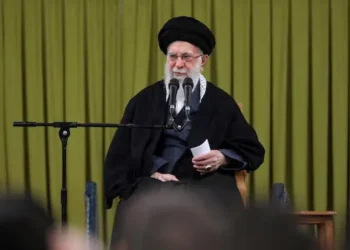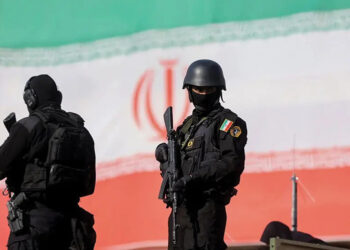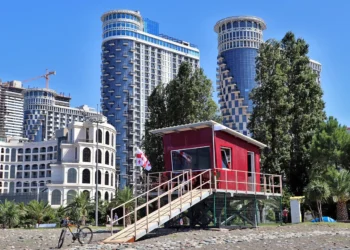De-facto authorities in the Russia-occupied Abkhazia and Tskhinvali regions have reacted to the ruling Georgian Dream leader Bidzina Ivanishvili’s statement which blamed the 2008 war on the “external forces” and the Georgian government of the time. Ivanishvili suggested the Georgian people “will find strength in themselves to apologize.”
De-facto Sokhumi authorities welcomed the statement “if it is supported with real steps,” while the occupation regime in Tskhinvali links it to Georgia’s upcoming Parliamentary elections.
“Let’s hope that Mr. Ivanishvili will be sincere in his intentions and will find the right words in relation to the Abkhazian people,” – the statement of the so-called the ministry of foreign affairs of occupied Abkhazia said.
In the statement, the so-called the ministry of foreign affairs notes that such a statement “may become the beginning of the process leading to peaceful coexistence and good neighborly relations”.
“We paid attention to the recent statement of Bidzina Ivanishvili, the chairman of the ruling party of Georgia, Georgian Dream, according to which, after the victory in the parliamentary elections scheduled for October 26, the Georgian government will find the strength to apologize for the fact that the National Movement party “set Ossetian brothers and sisters on fire in 2008.” Although this statement does not directly refer to the Republic of Abkhazia, we would like to point out that such a statement, if supported by real steps towards reconciliation, based on re-evaluating past mistakes and apologizing to the people of South Ossetia and Abkhazia, rejecting the methods of political and economic pressure and signing peace agreements , may become the beginning of the process leading to peaceful coexistence and good neighborly relations,” the statement said.
A de-facto official from the occupied Tskhinvali region’s “presidential administration” Yuri Vazagov said that they expect “not only verbal declarations but also practical steps, including within the framework of the Geneva discussions, where the main issue remains achieving agreements on a legally binding document for security guarantees,” Jam-News reported on September 15.
“The independence of South Ossetia cannot be a subject of discussion. Regarding Bidzina Ivanishvili’s remarks, it should be noted that Georgia is currently in the midst of an election campaign. The competition between major political forces ahead of the parliamentary elections scheduled for October 26 has become quite intense,” he said, adding that “the tone of statements made by various political forces, and those that will be made, is directly related to the electoral cycle, and South Ossetia does not interfere in the domestic political processes of neighboring countries.”
The so-called opposition representative of the occupied region Atsamaz Bibilov, leader of the party United Ossetia said: “Georgia must acknowledge its guilt for starting the war and committing war crimes in South Ossetia; only then can we consider Georgian politicians’ apologies to be sincere.” He is also of the opinion that Ivanishvili’s promises are driven by pre-election campaign: “With elections approaching, the current government, represented by Georgian Dream, is making various statements about South Ossetia and Abkhazia. However, in practice, the Georgian side is taking no steps toward joint delimitation and demarcation of the South Ossetia-Georgia border.”
De-facto leader of the occupied Tskhinvali region during the Russia-Georgia 2008 war, former “president” Eduard Kokoity wrote that “if Georgia feels a sense of responsibility towards the Ossetian people, then the first thing Georgia should do is recognize the independence of South Ossetia, sign all necessary agreements to guarantee peace and prevent the resumption of hostilities…,” he also said Georgia should return what he called “Ossetian valleys occupied by Georgia” mentioning Truso and Mtiuleti Aragvi valleys in the north of Georgia, adjacent to the former S. Ossetian autonomous district.
He caimed that “peace with Georgia must be on Russia’s terms, so that Georgia and other neighboring states of the South Caucasus can no longer jeopardize the peace and stability of the entire region for the sake of non-regional countries and military blocs.”
Related story: REUTERS: Georgia’s most powerful man suggests Georgians apologize for 2008 war with Russia














